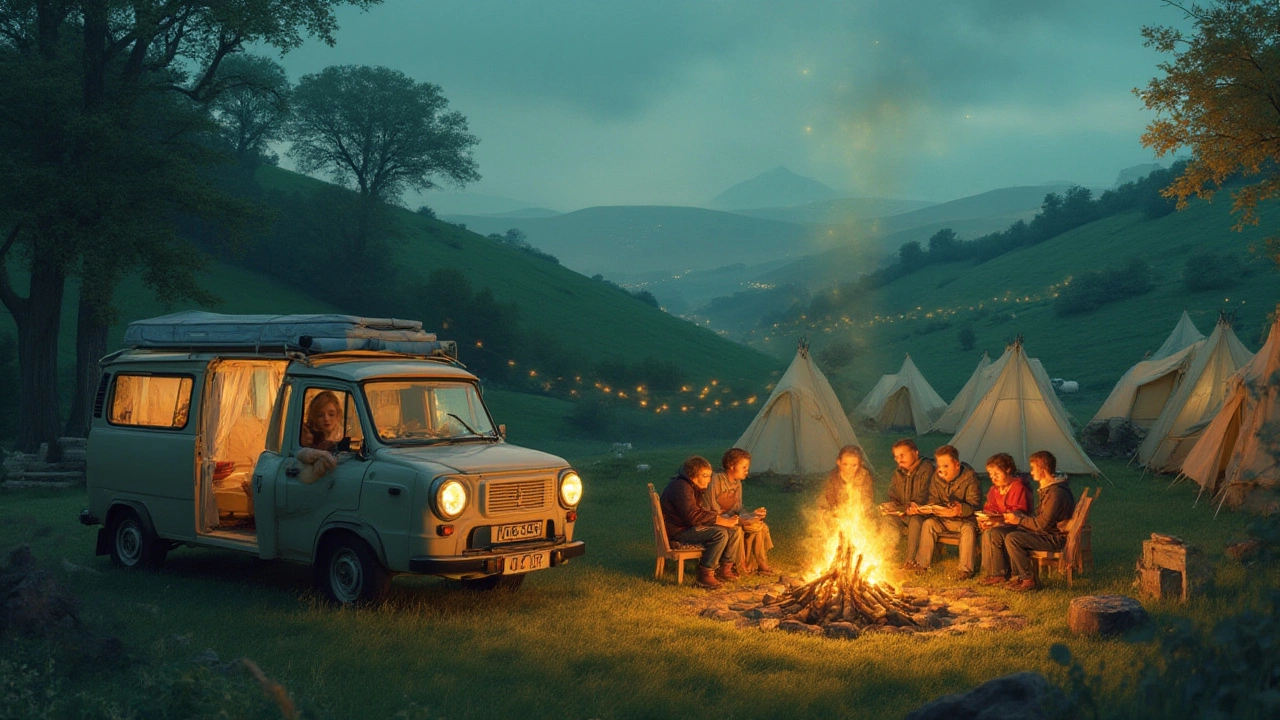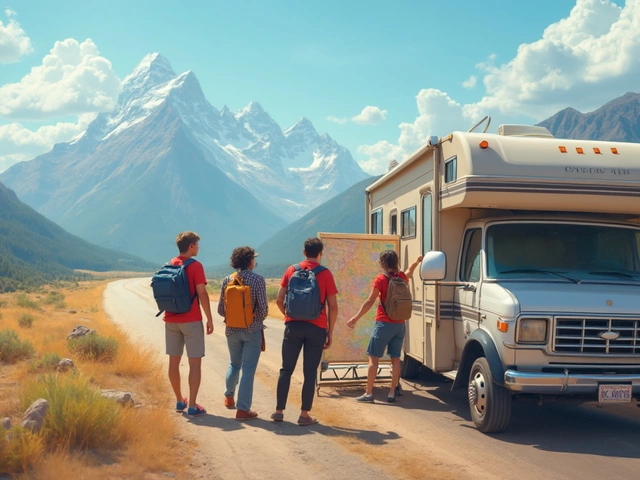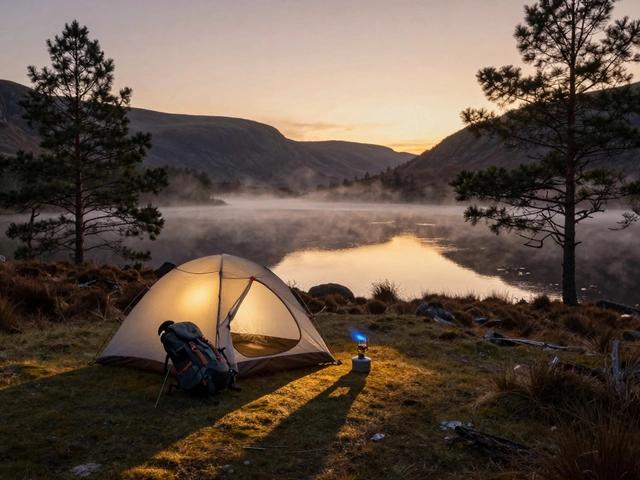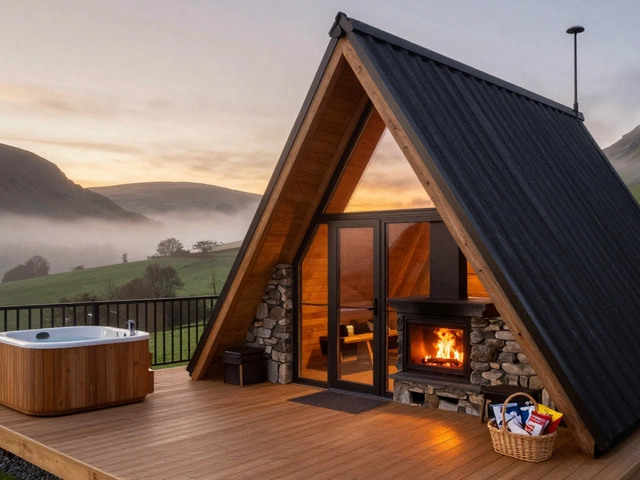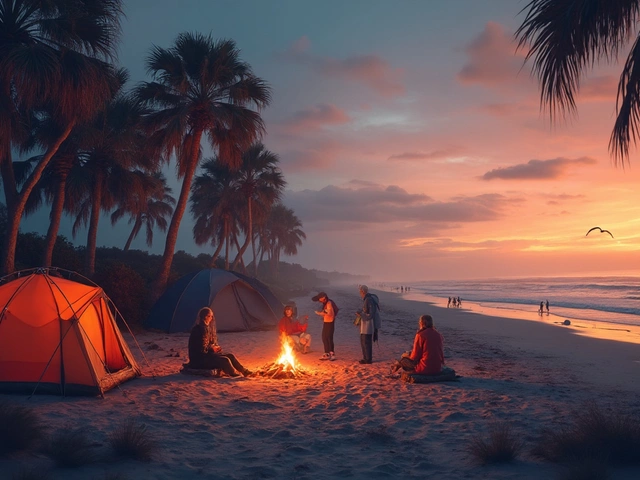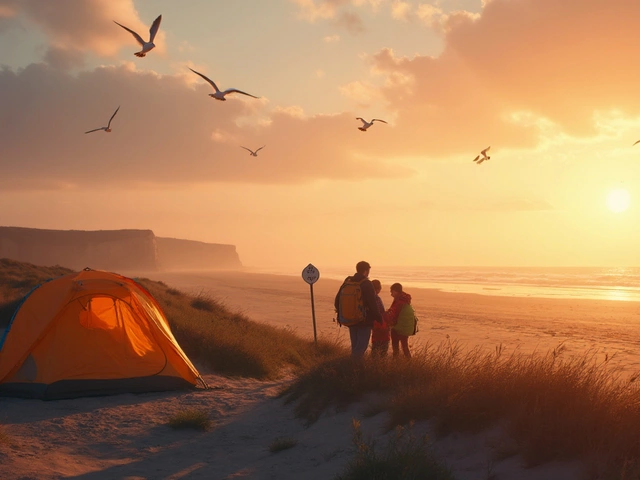Imagine pulling up to a quiet UK campsite after a long day of hiking with your dog in the back seat, the kettle ready, and your sleeping bag spread out in your car. It feels like freedom, right? But then you wonder—is this even allowed? The UK might seem relaxed, but it's not always as simple as napping behind the wheel. The truth is, whether you can sleep in your car at a campsite depends on more than just a tired traveler’s wish.
UK Campsite Rules: Can You Actually Sleep in Your Car?
The answer depends on where you park and who runs the campsite. Most official UK campsites are set up for tents, caravans, or motorhomes. But what about that family hatchback or estate car? Here's the thing—campsites across the UK set their own house rules. Many don't automatically offer a 'sleep in your car' pitch, largely because of insurance, planning permissions, and local council rules. But let's get into the details.
Public campsites, such as those under the Camping and Caravanning Club or the Caravan and Motorhome Club, often divide pitches into tents, caravans, campervans, and ‘miscellaneous’ categories. Some don't mind if you sleep in your vehicle—especially if it's a self-contained van, but if you're pitching up to doze in your standard car, you might get odd looks or even a polite ‘no’ at the gate. Still, smaller, privately run sites can be much more flexible. They may accept car campers if you chat with the owner first, especially midweek or outside the high season.
sleep in car UK campsite policies really vary. For example, there are campsites in rural Wales and Cornwall that openly welcome 'stealth cars'—that’s driver-speak for inconspicuous car camping setups. But in places with strict local rules or heavy tourism, wardens can turn you away if you're not in a recognized campervan. So always check the camp’s website or call ahead before arriving, unless you enjoy last-minute improvisation.
The same goes for wild camping—which is technically restricted across England and Wales (except for parts of Dartmoor). Scotland is a bit different, because its outdoor access laws are more relaxed. You can often park up in certain places overnight, as long as you’re not causing a scene, but you’re on shaky ground if it’s National Trust land, private car parks, or busy spots popular with day-trippers.
Now, if you’re thinking about pulling into a motorway rest stop or supermarket car park, don’t. Many have signs that strictly ban overnight stops. Automatic cameras clock you, and you risk waking up to a hefty fine. Municipal parking lots, especially near beaches and parks, often have 'no overnight sleeping' signs for a reason. There are exceptions—some spots in Scotland and rural Northumberland still allow overnight stays, but they’re rare and always subject to local rules.
One thing often missed: insurance. Your standard policy might not cover overnight stays in a car at a campsite. If your gear is stolen or your car gets damaged while you snooze, insurance companies can be picky. Always read the small print and consider an upgrade if car camping is your new hobby.
Annoying? Maybe, but don’t let it put you off. Here’s a fact: a 2023 survey by UK Campsite magazine found that about 13% of campers had spent at least one night sleeping in their car in the past year—and almost half of those said they’d do it again if the rules allowed. So, even though it’s a bit of a grey area, you’re not alone if you want to try.
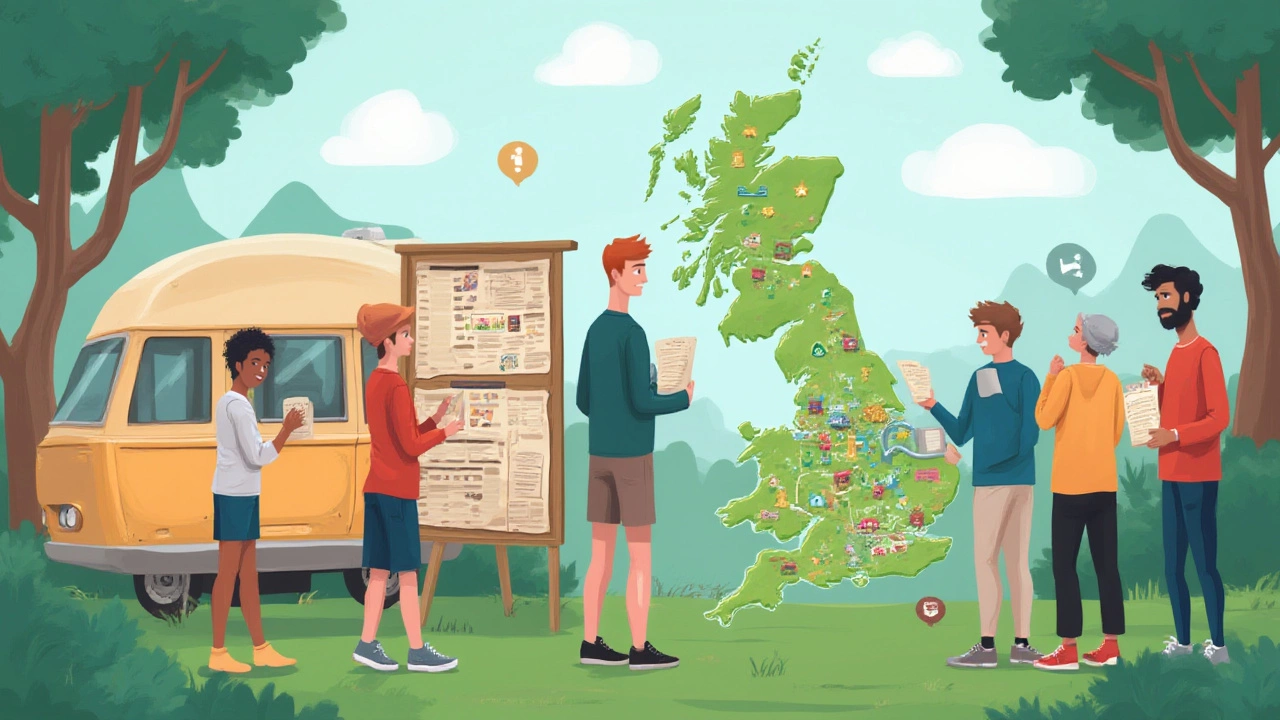
Getting Comfortable: Hacks and Real-World Tips from Car Sleepers
So, you've got the green light from a site owner, or maybe you're parked up within the fuzzy rules of the Scottish Highlands. Next question: can you actually get a decent night’s rest in your car? Absolutely—you just need some preparation, a bit of patience, and a willingness to adapt.
Size matters. If you drive something compact, like a Ford Fiesta, you might find yourself folded up like origami. Estates or SUVs usually work better. Take out the parcel shelf, flatten the back seats, pack your gear in stackable boxes, and use them to level out your sleeping platform. Bring a thick camping mat or an old duvet—don't rely on the bare upholstery unless you want a sore back.
Condensation is the enemy. With Rex curled up beside me, the windows fog up by 2am, guaranteed. The pro trick? Crack the windows an inch or use those snap-on window vent shades—gives you airflow without waking up shivering. If you're worried about privacy, hang blackout curtains or pop up those tailored magnetic shades you see on vanlife YouTube channels. They're a game changer.
Packed car? Use your boot for gear. Lay out what you need before sundown—digging for that headlamp at midnight isn’t fun. Keep a bottle of water by your pillow and know where the nearest loos are, because even veteran car sleepers haven't solved the 3am bathroom dash. And always park on flat ground. Even a tiny slope and you’ll slide into the footwell all night.
Charging your phone: although some modern cars have sockets that stay powered after the ignition’s off, many don’t. Carry a portable battery, or if you do this often enough, consider a second leisure battery with a split charge relay—a bit much for one night, but gold if you make a habit of it.
For safety, always lock your doors and keep your key in a spot you can grab in the dark. It’s simple, but it matters when you’re alone somewhere new. Camping with Rex, I always make sure he’s got enough space to stretch out and never leaves treats within his reach—learned that the hard way.
Food-wise, keep it simple. Many sites allow small gas stoves, perfect for a quick brew or instant porridge. Never cook inside the car—carbon monoxide is no joke. If it’s pouring rain, retreat to the nearest covered picnic table, or go local and find a cozy pub.
Here’s a quick gear checklist for newbies—or if you’re forgetful, like me:
- Good-quality sleeping mat or inflatable mattress
- Warm sleeping bag rated for UK nights (even in summer)
- Blackout window covers or curtains
- Midge repellent (especially in Scotland!)
- Rechargeable torch or headlamp
- Power bank for gadgets
- Flask of water
- Earplugs—campsite wildlife starts early
- Your dog’s favourite blanket
One overlooked tip: get to know the site vibe before you commit. Read reviews or scan forums. Some sites are super-friendly to car sleepers, others see them as cheeky freeloaders. If you're respectful—arrive during check-in times, pay your fee, and leave no mess—you'll almost always be welcome back. Morning chats with the person in the next pitch often lead to tips on where to find the best walks or nearest bakery. People love a good car camping setup story, especially if you make tea for the group.
Here’s a simple comparison table of common vehicle camping options and typical UK campsite attitudes:
| Vehicle Type | Typical Campsite Policy | Best Features | Challenges |
|---|---|---|---|
| Standard Car | Varies; check in advance | Low profile, flexibility | Space, comfort, rules unclear |
| Estate/SUV | Often accepted, especially private sites | Extra space for kit or dogs | Still needs check-in and approval |
| Campervan | Widely accepted | Designed for it, easy approval | Cost, parking space required |
| Motorhome | Always accepted if pitch available | All-in-one comfort | Less flexible for wild or stealth camping |
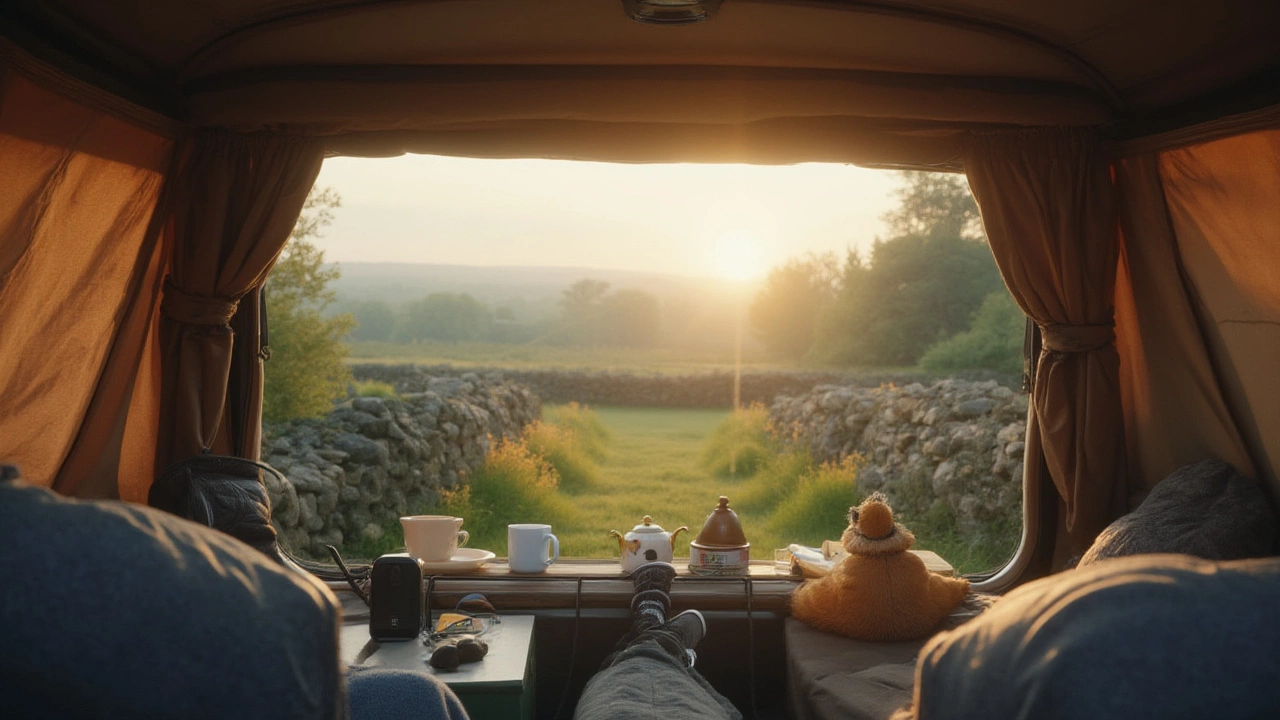
Legal Loopholes and Common Pitfalls: What Not to Do When Car Camping in the UK
Plan on just rolling up anywhere and snoozing in your car? Hold on—that’s where most run into trouble. First, there’s the legal minefield: in most of the UK, wild camping isn’t technically allowed without landowner permission, and that includes sleeping in your vehicle. Some folks play the odds, tucking into rural lanes or forest car parks, but if caught, you could get a knock and be asked to move on—or fined, especially in popular tourist hot spots during summer holidays.
If you're tempted by remote laybys or scenic viewpoints, remember that local authorities have clamped down on this in recent years. In 2022, parking enforcement along the North Coast 500 in Scotland picked up, and Cornwall council started new overnight parking restrictions around St Ives and Lizard Peninsula in July 2023. They put these in after big spikes in wild camper numbers, so those ‘hidden gem’ spots now have more patrols than ever.
Then there’s the safety side. Parking up in a lonely, unlit spot feels brave, until your phone signal drops or a stranger knocks at your window. It’s far better to book a proper campsite—even just for peace of mind. Buy a night’s stay, follow the site rules, and you’re set. A lot less stress for a better night’s sleep (for both you and your dog).
Don’t leave rubbish, play loud music, or start a fire unless the landowner says it’s okay. If you’re camping in your car at a proper site, facilities like toilets, water, and rubbish bins are included in your fee—use them and leave your patch clean. Some sites are so keen on keeping things quiet that they’ll ask you to keep doors and boots shut after midnight, so don’t be that person who wakes the whole field rifling through the boot for your midnight snack.
Pay attention to the season. In winter, some sites close completely, and in summer, popular ones can be booked solid weeks in advance. Always check opening times and book ahead if possible. Park your car responsibly—don’t block tracks or pitch up in spots reserved for larger caravans.
Avoid urban car parks. Loads of UK towns have bylaws against sleeping in vehicles, enforced with fines or, if you’re unlucky, a 5am knock and a confused local PCSO (that’s a Police Community Support Officer). The same goes for beauty spots and nature reserves—they often have locked gates and early morning wardens.
Last, but not least: always tell someone where you’re going if you’re camping solo, and keep an eye on the weather. It’s no fun waking up in a rainstorm parked on boggy ground. Use apps like Park4Night or Searchforsites to hunt out recommended, legal spots—people post reviews, so you get the lowdown before you arrive. Campers rate everything from the attitude of the owner to how soft the ground is (tip: always trust a dog owner’s review—they know the best walks).
So, can you sleep in your car at a UK campsite? You can, but only if you play by the rules, check ahead, and turn car camping from an awkward backseat nap into an experience worth repeating. And who knows, your dog might claim the front seat as his own by sunrise. As far as simple adventures go, few things beat rolling out of a UK campsite at dawn, kettle steaming, road ahead, and home on four wheels.
